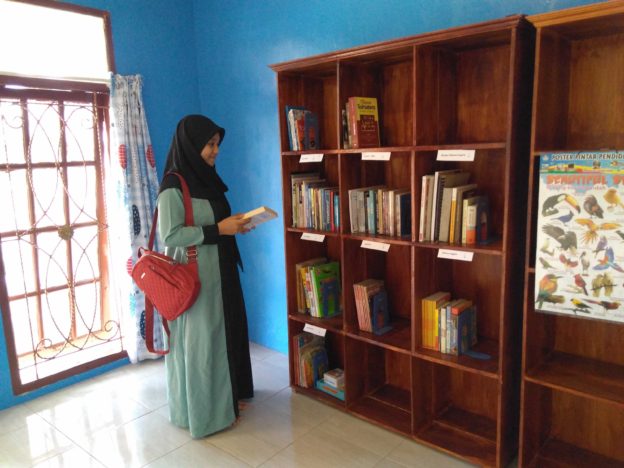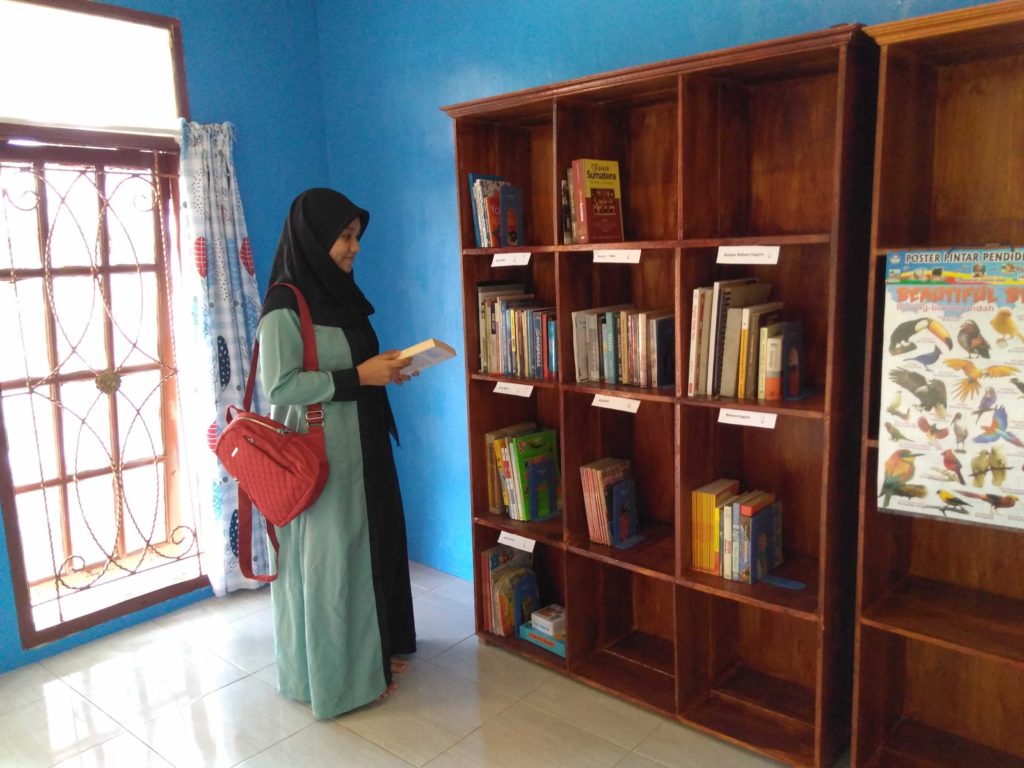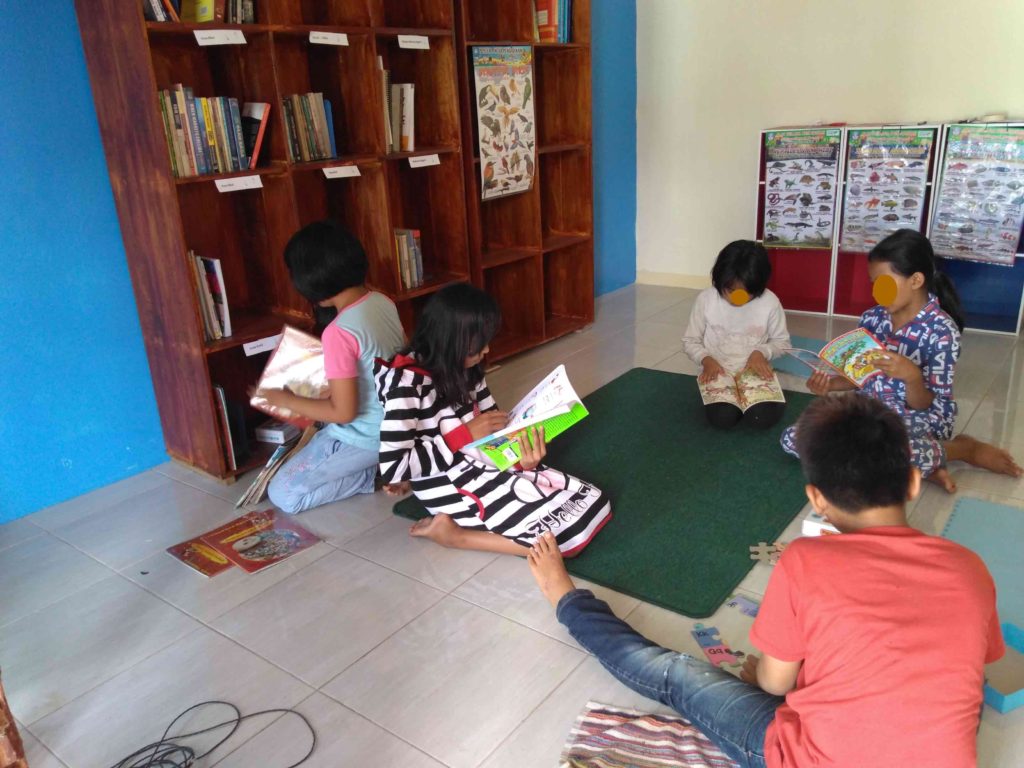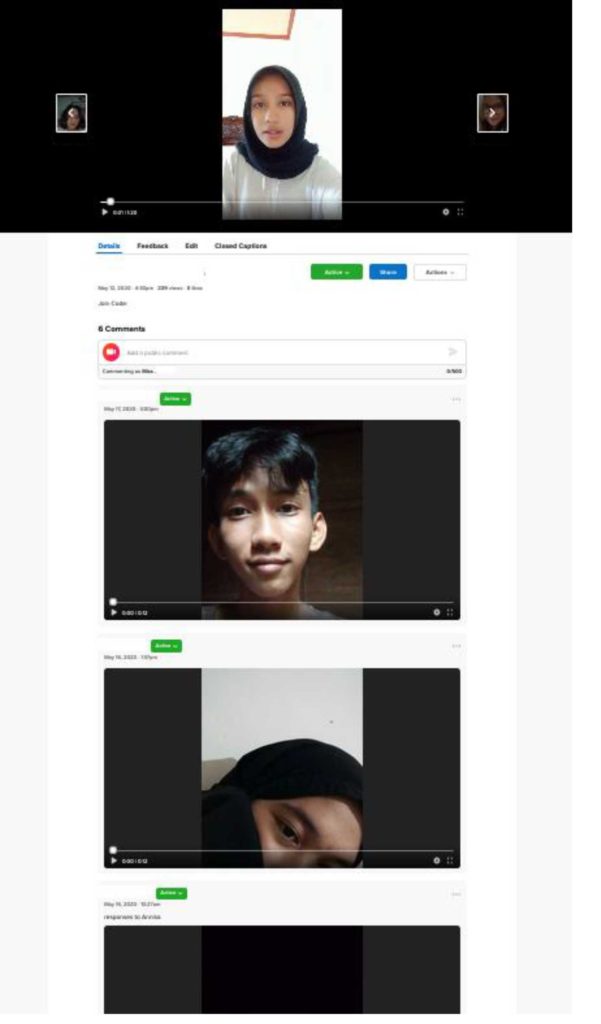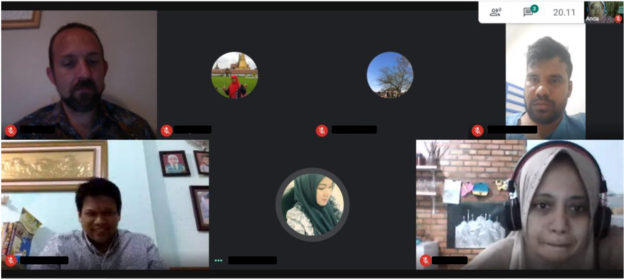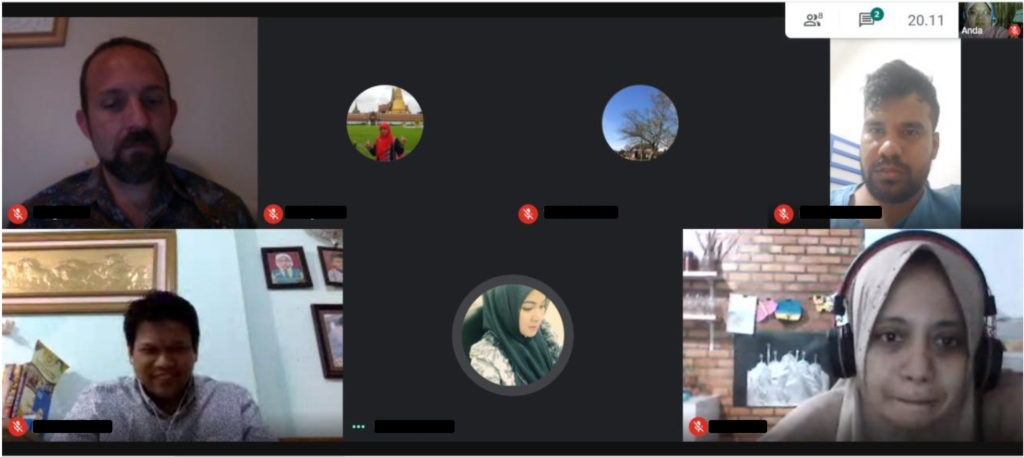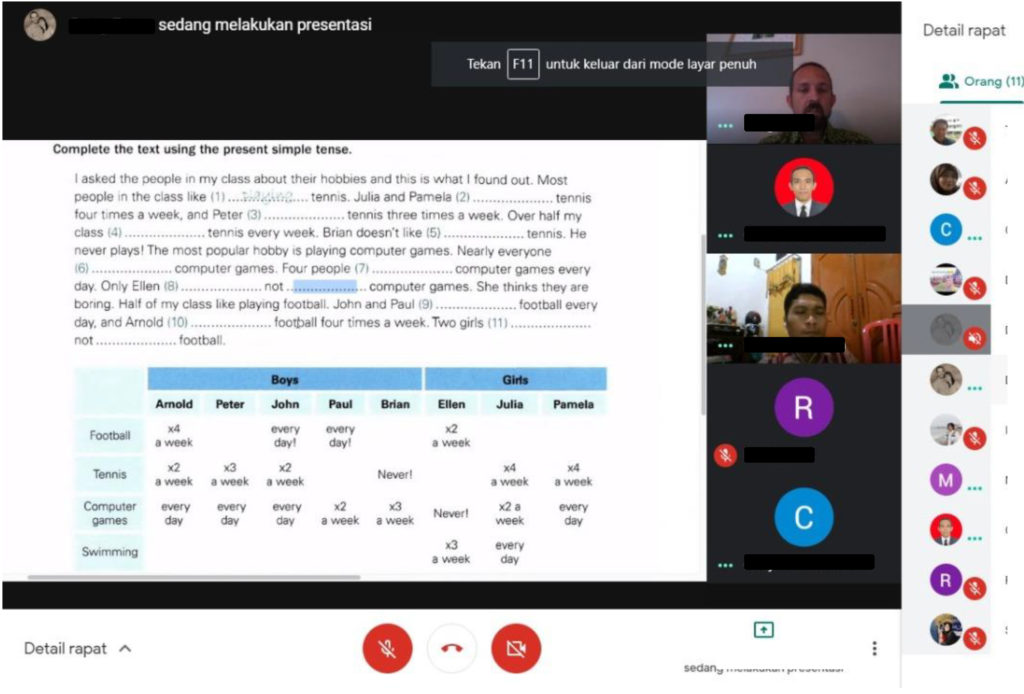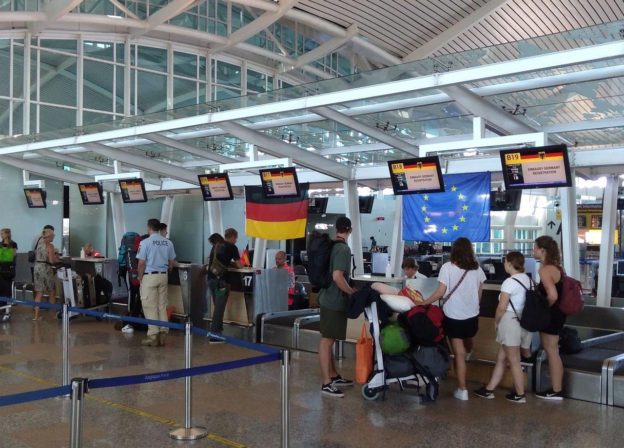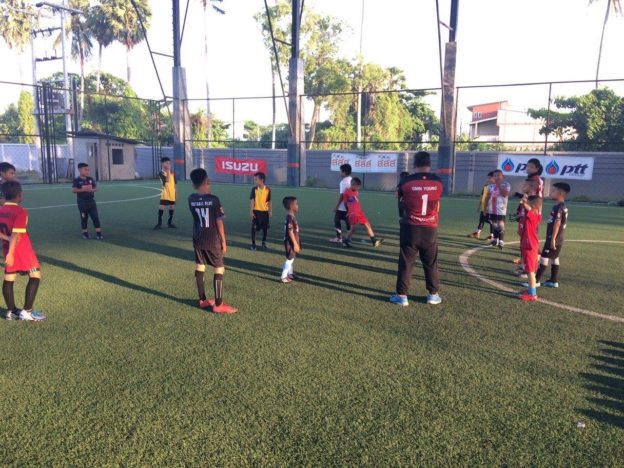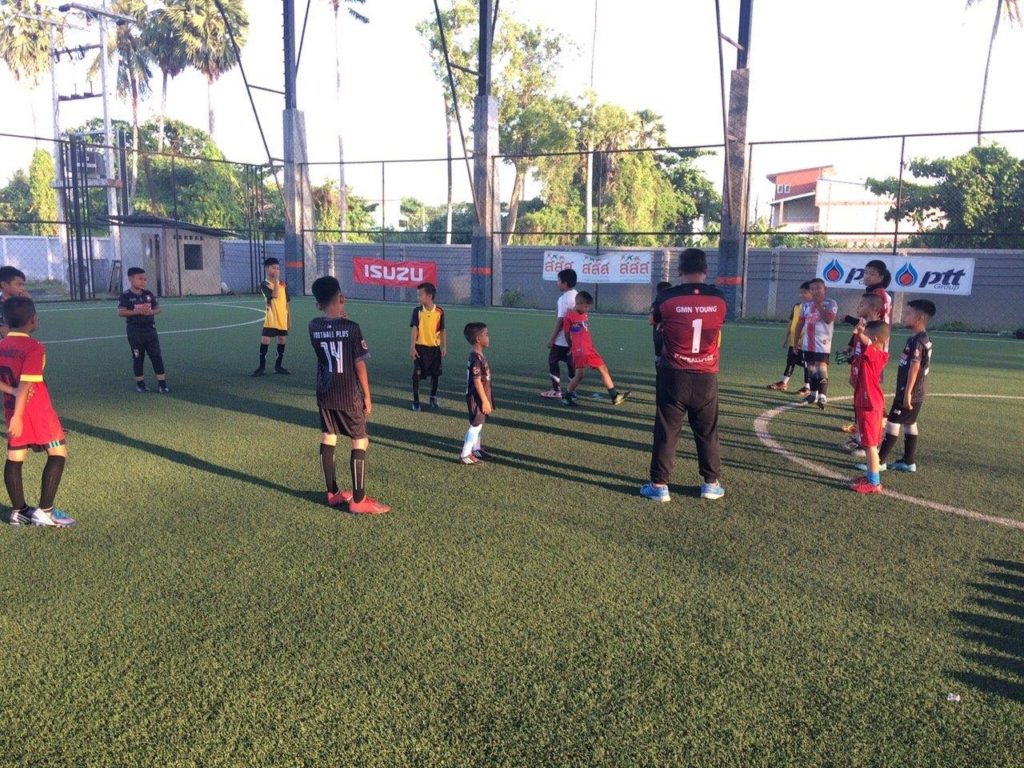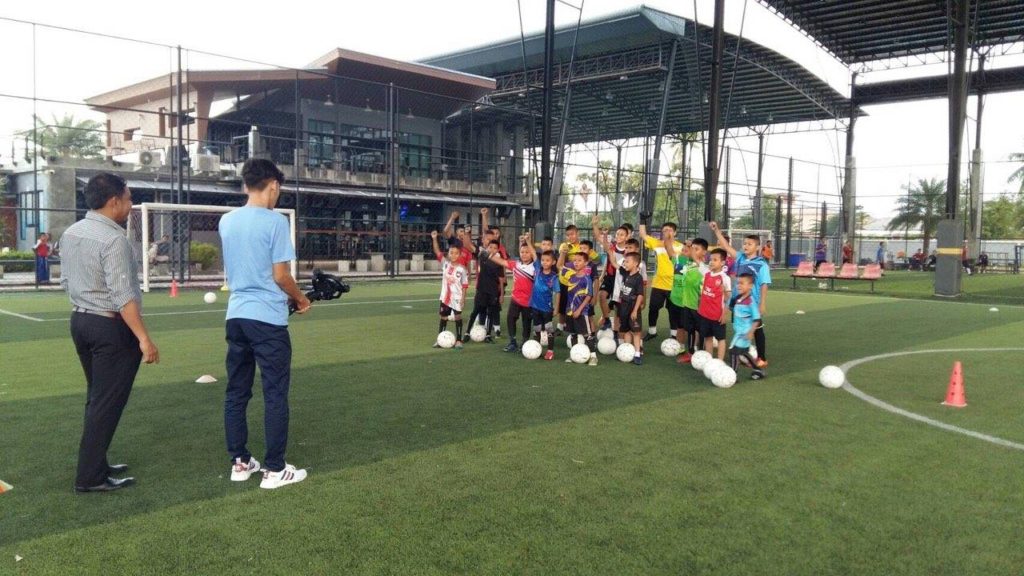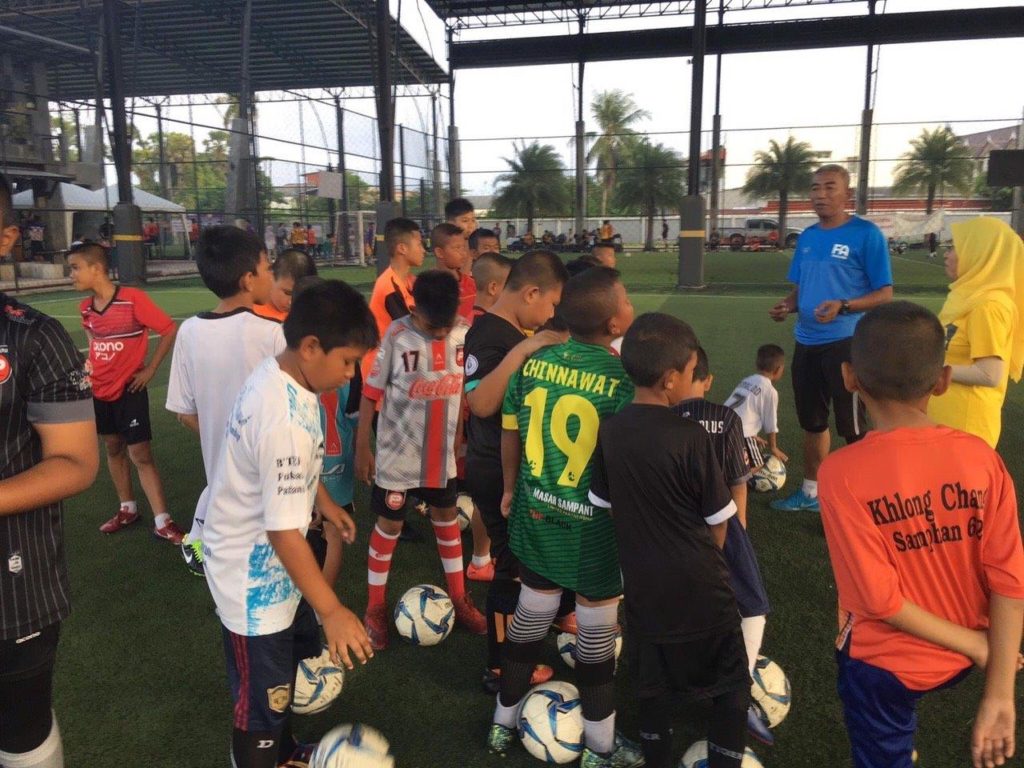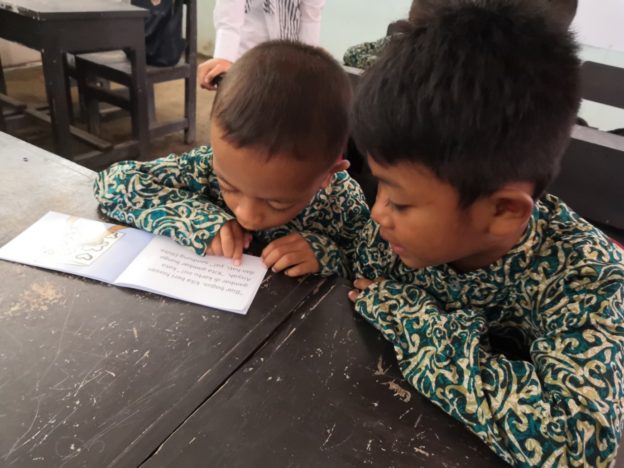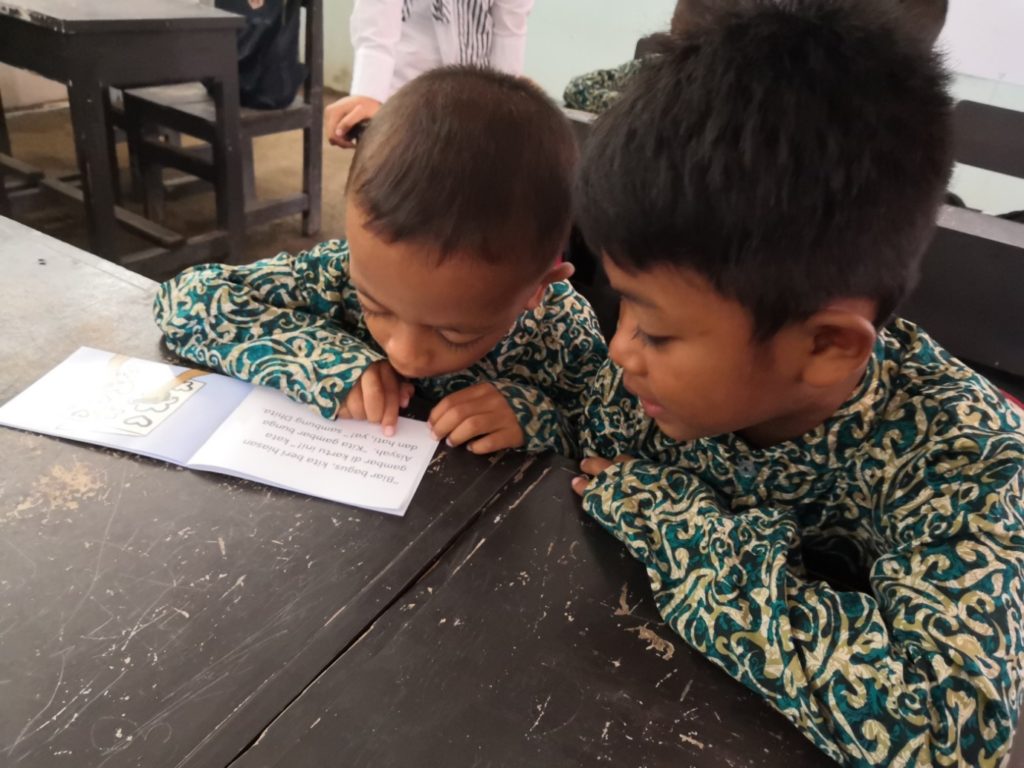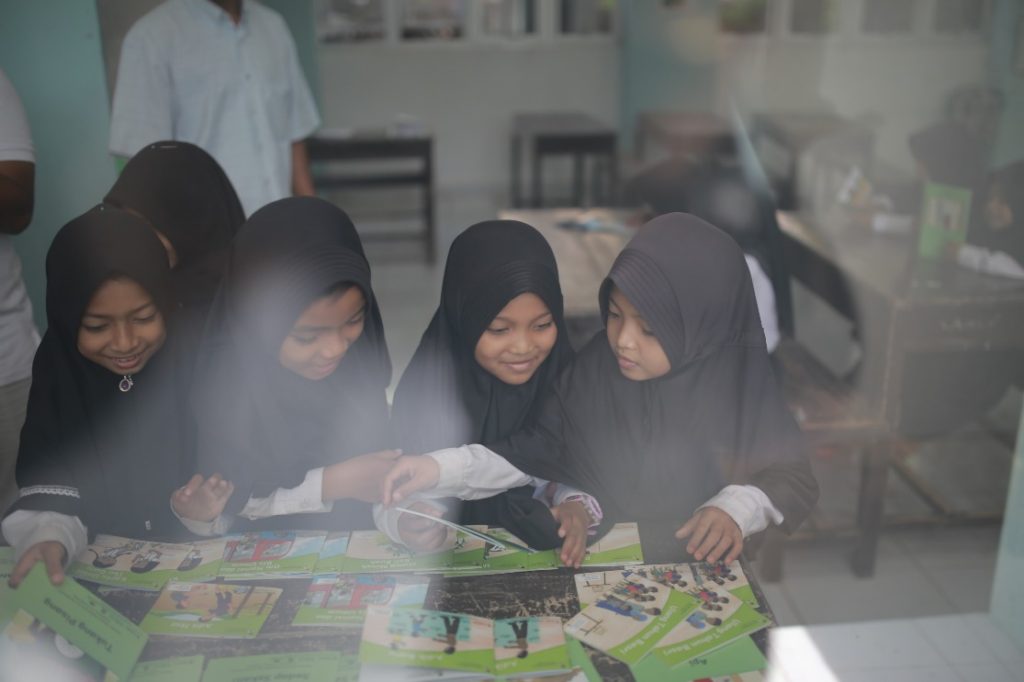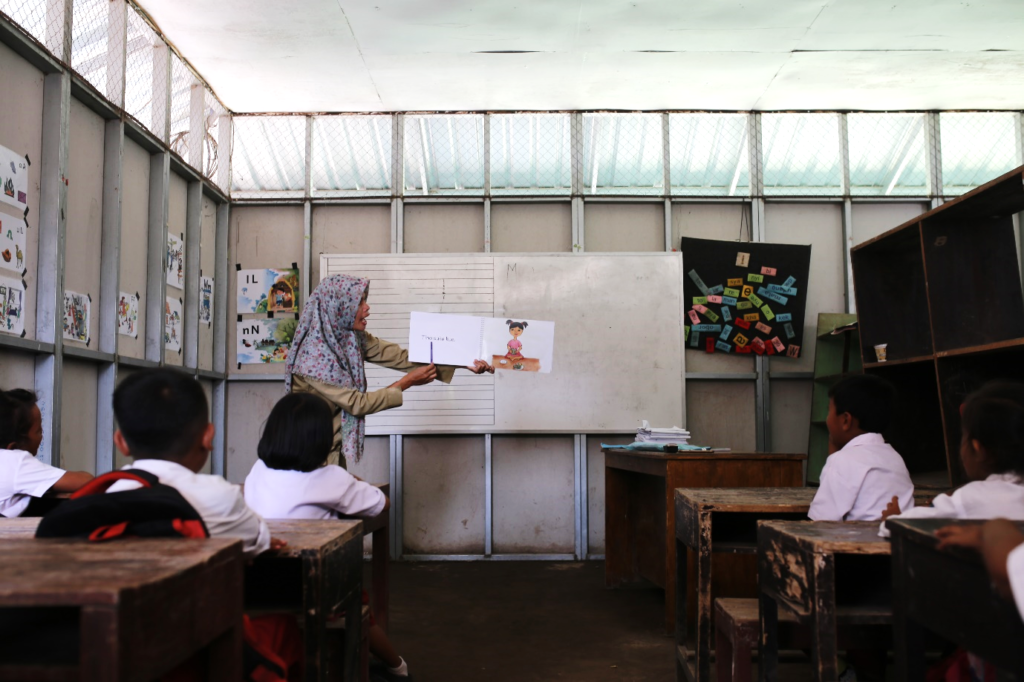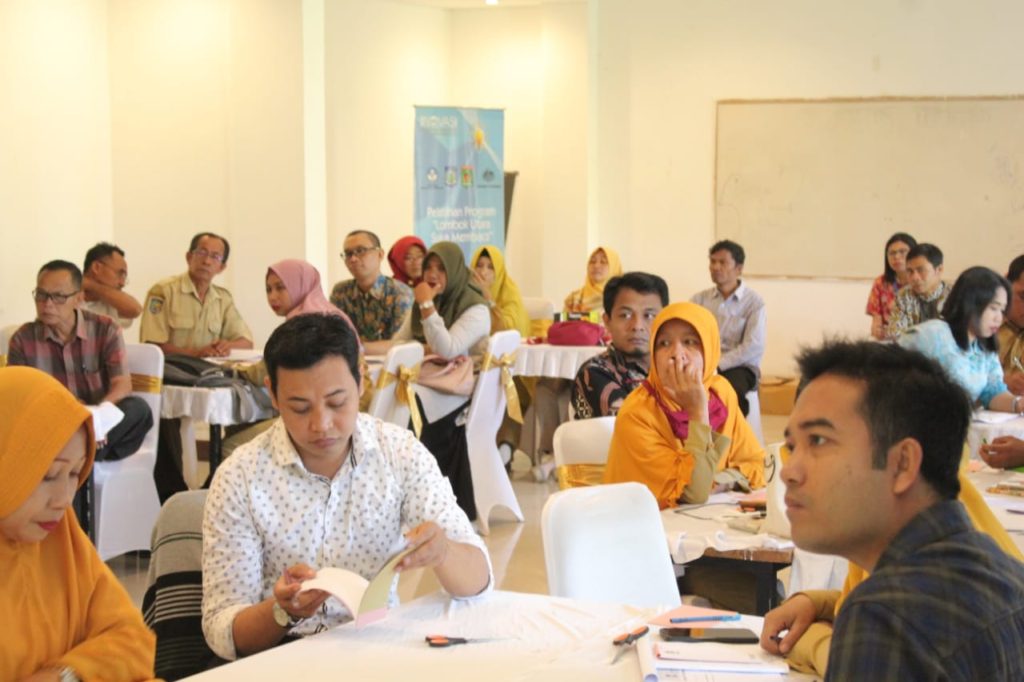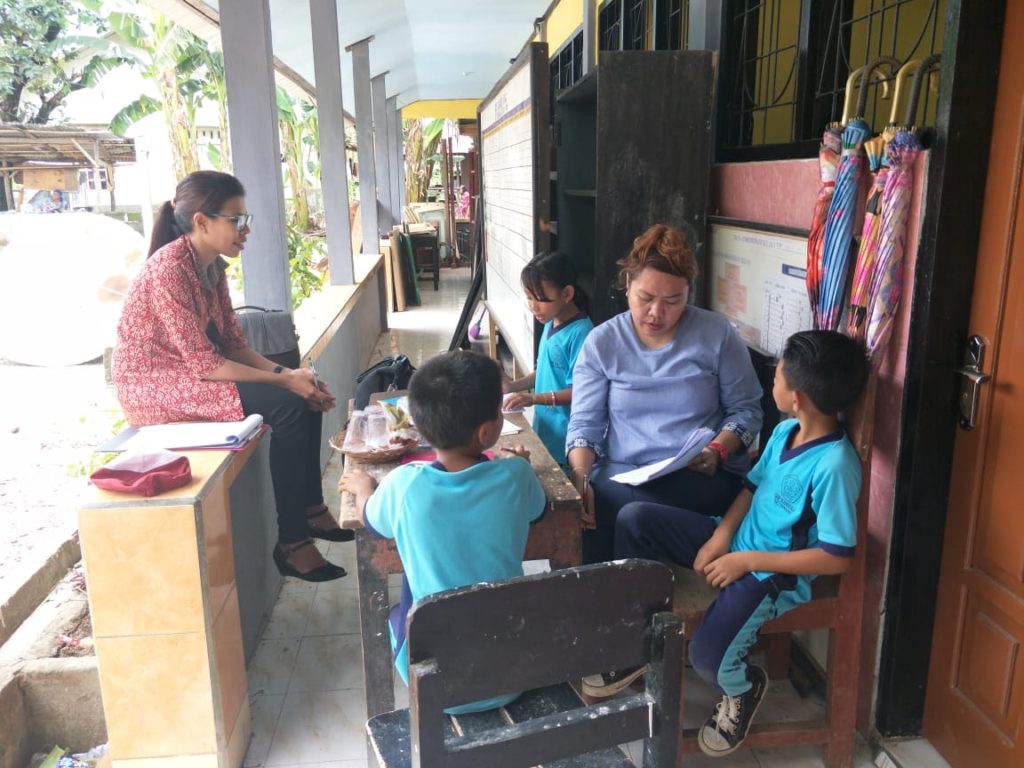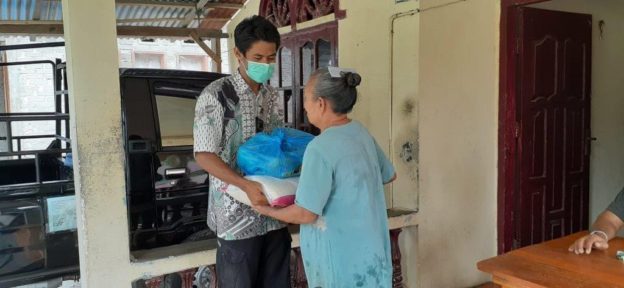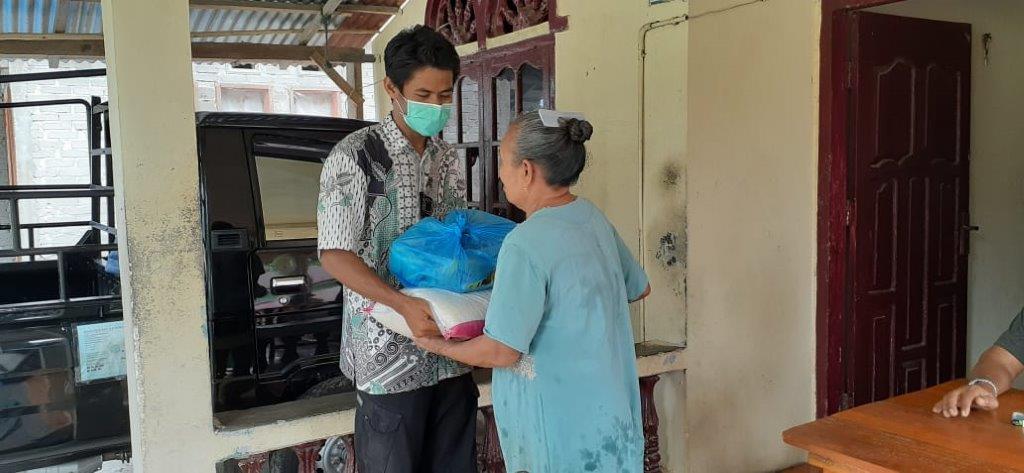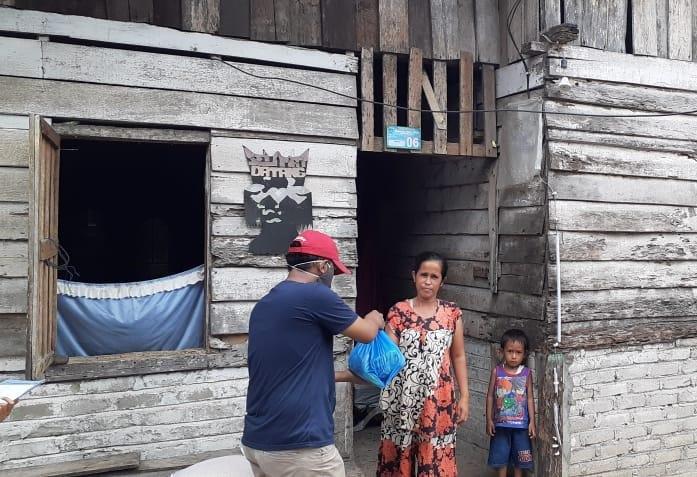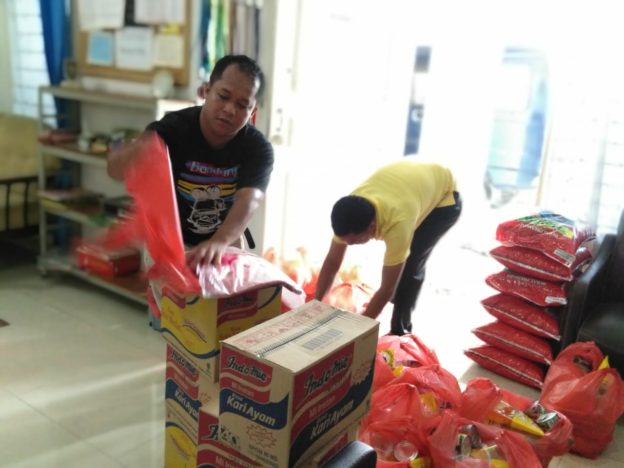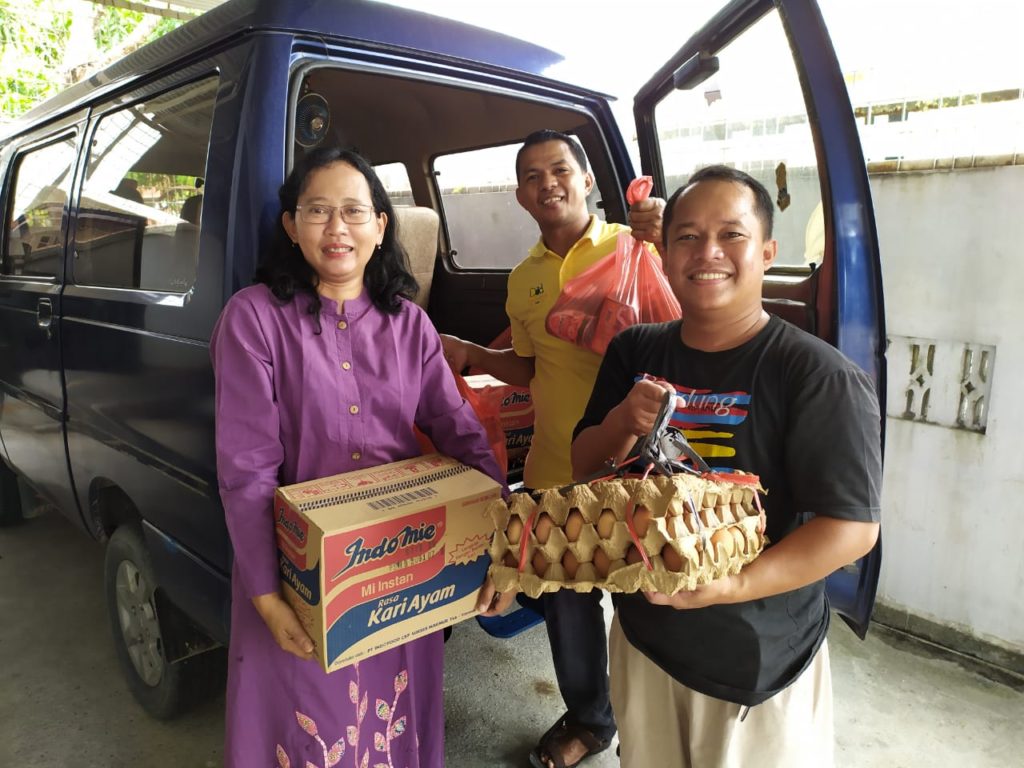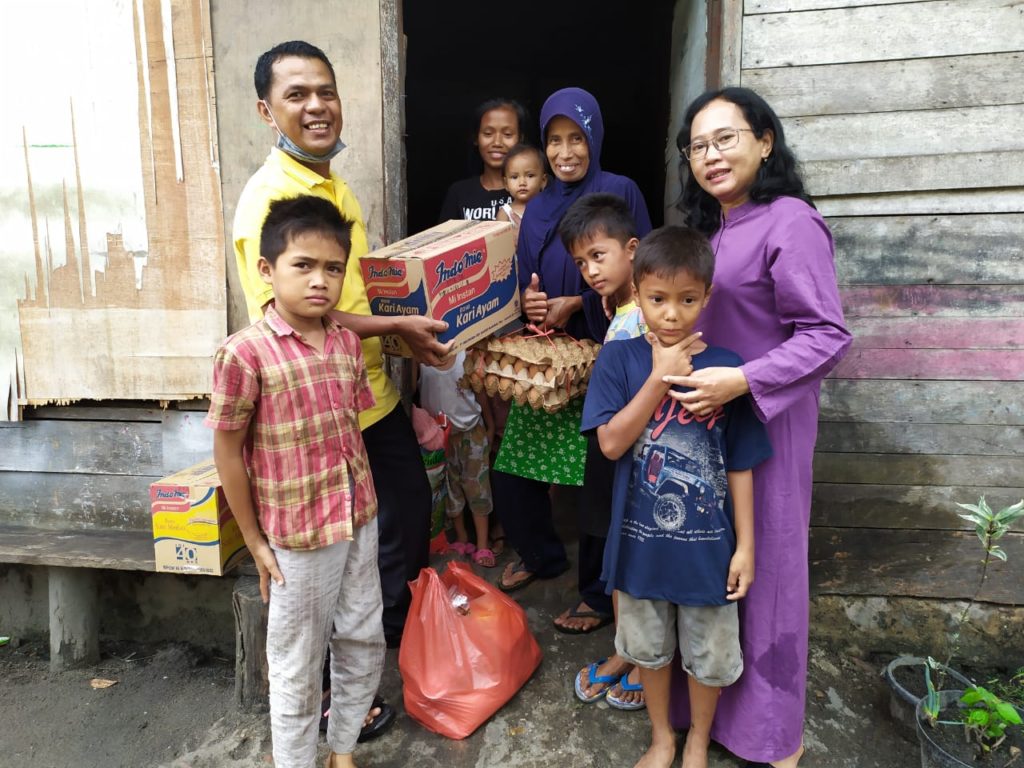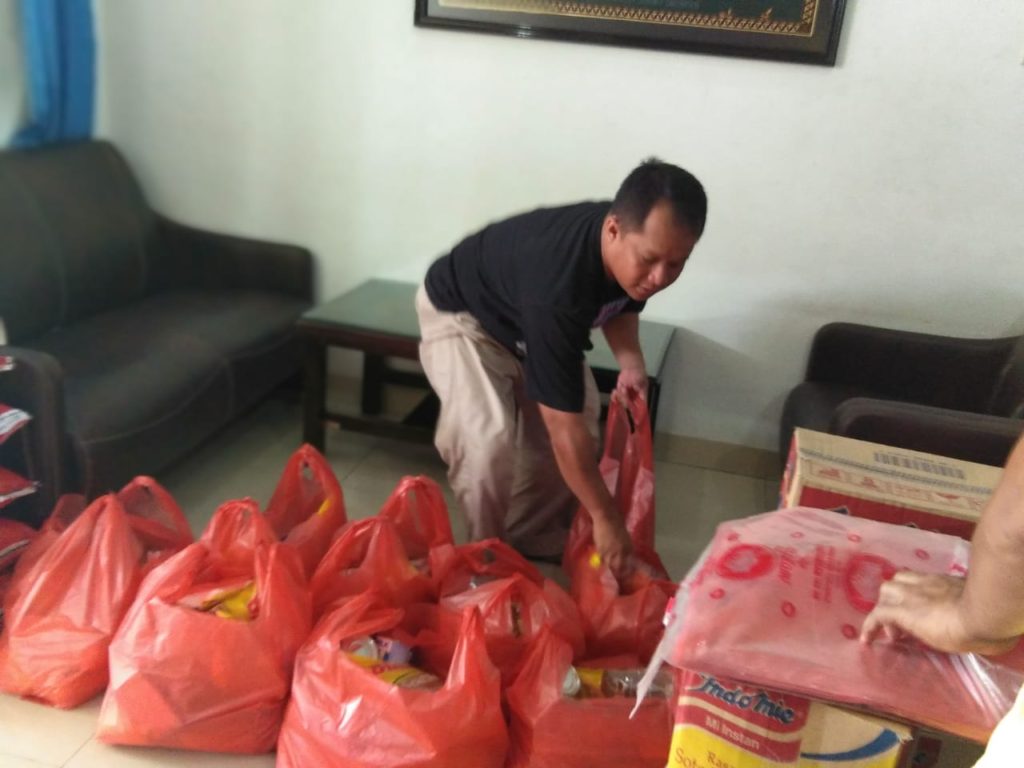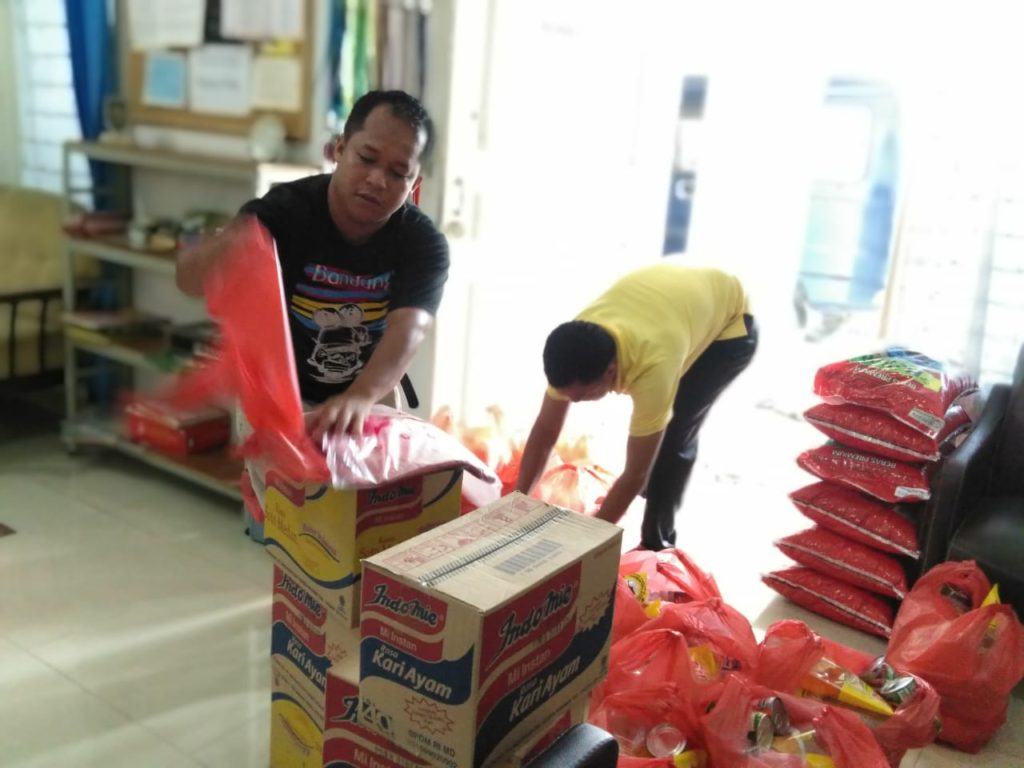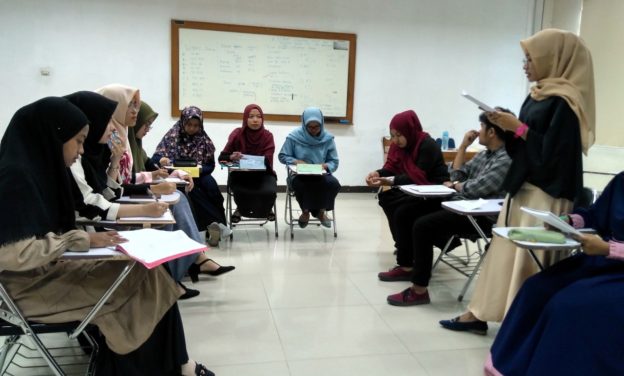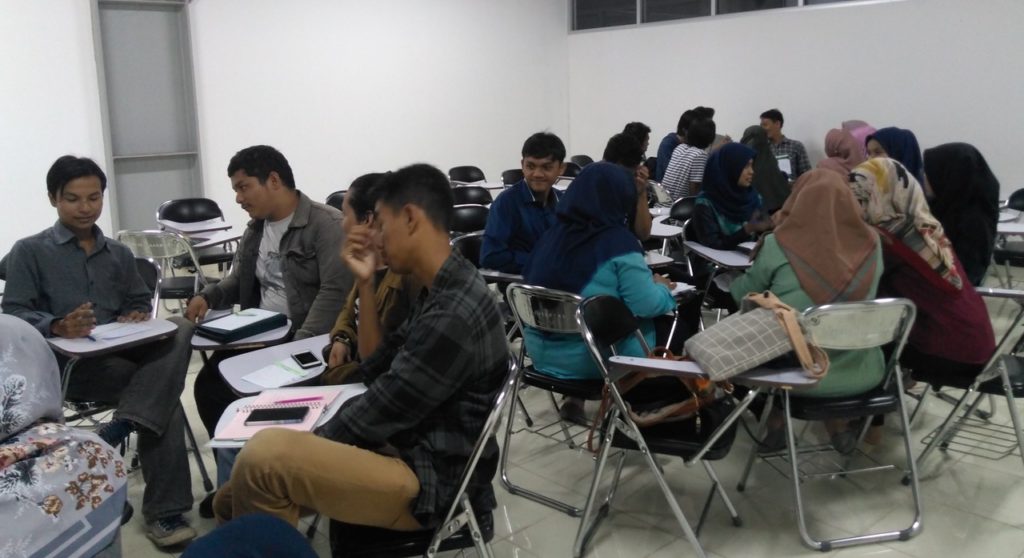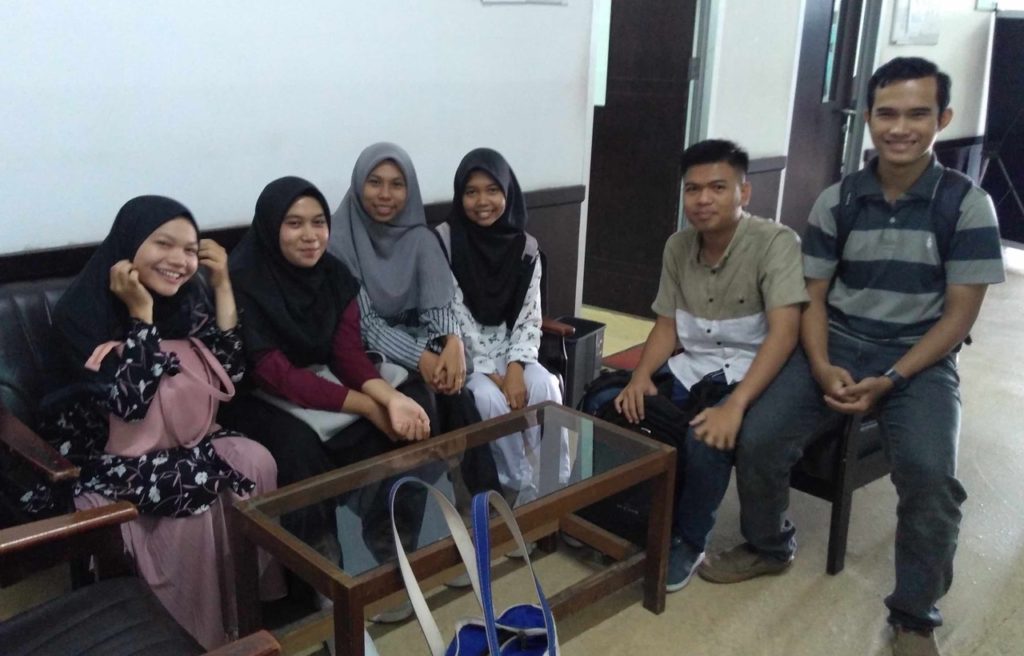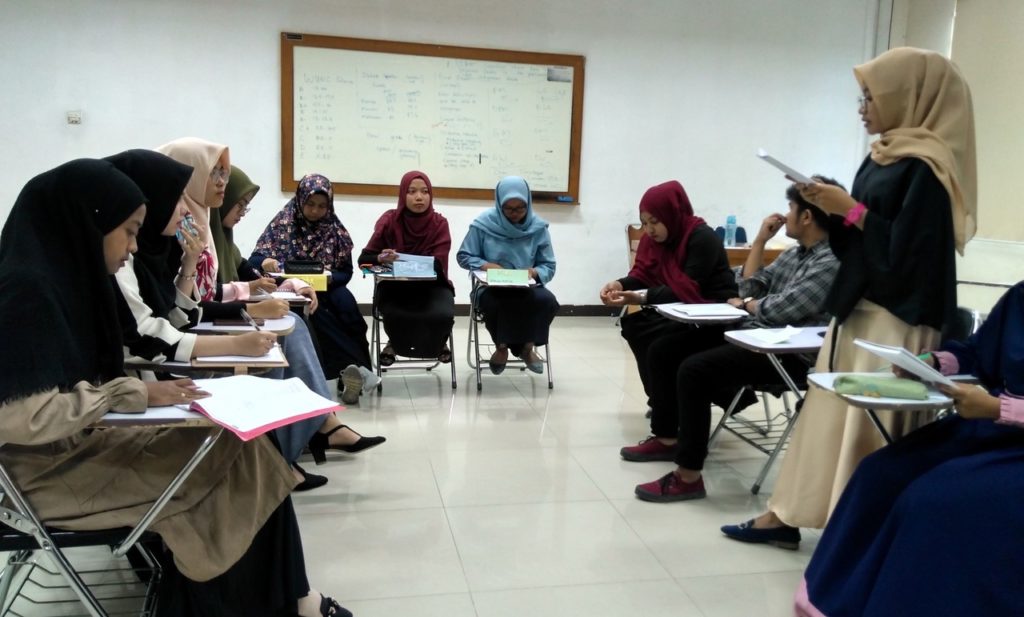With university classes now online, the focus for our SEEDS worker in Sumatra is getting students motivated to practice speaking English. It is too easy for them to not participate in a large online meeting, so other creative ideas are necessary. Breakout rooms help to give them smaller groups for interacting with each other and for practicing their speaking skills. Another social media app lets students make videos of themselves to which other students can respond. This becomes a virtual conversation as they make more videos to respond to comments from our worker or from other students.
Another new opportunity to help increase literacy is the community library that our worker has opened in a room in her house. Children and adults can come and read books in the library or they can borrow books to take home. Educational games are quite popular with the children. One of the most popular games is an alphabet puzzle which is usually the first thing that the children do when they arrive. One little girl who often comes to the library sometimes does the puzzle several times. There are plans for offering English lessons which has been a common request. Books for adults include topics on health, nutrition, pregnancy, economics, and on how to become a successful person. A newly pregnant neighbor was happy to find books that will help her in this new experience.

